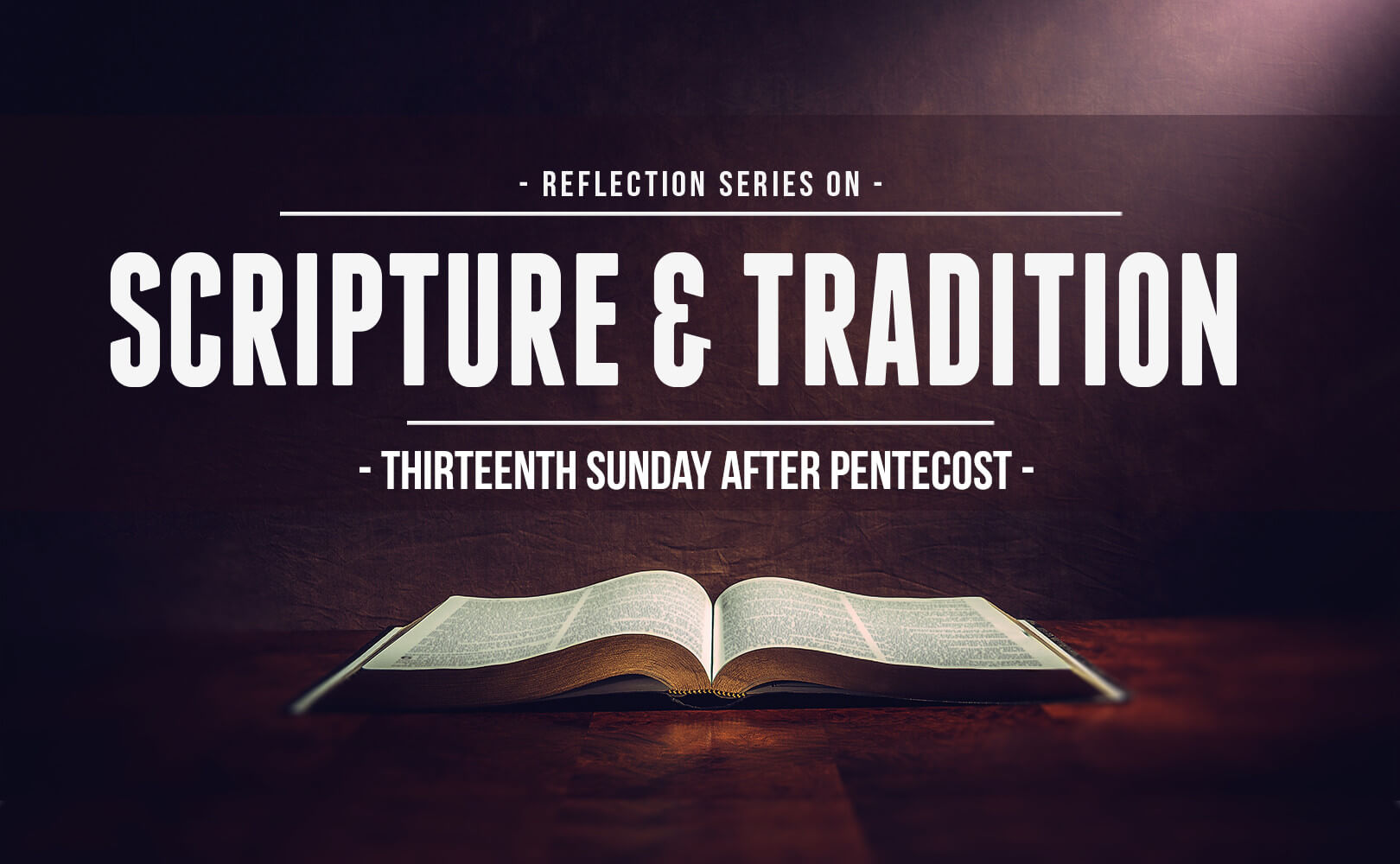Epistle: Galatians 3:16–22
Gospel: Luke 17:11–19
Almighty and everlasting God, grant unto us an increase of faith, hope and charity: and that we may obtain what Thou dost promise, make us love that which Thou dost command.
—From the Collect for the Thirteenth Sunday after Pentecost
Last Sunday, the readings reflected on the importance of charity and how charity fulfills the law. Again this Sunday, we are confronted with the role of the law in the Christian faith. Although it might be tempting to believe that the relationship of the old Law with the New Covenant was merely a first-century problem, it still impacts our lives as Catholics today.
Sunday’s Epistle comes from St. Paul’s letter to the Galatians. While his letter to the Romans is considered the apostle’s master theological work, Galatians could be called Paul’s “little catechism” in comparison. This letter was written earlier than Romans, and it covers some of the same themes, including how the old Law relates to the New Covenant.
St. Paul notes that the Mosaic Law came centuries after the covenant promises God made to Abraham. This means that the promises, not the Law, are the basis of the Old Covenant. It is not the Law that gives life (Gal. 3:21; cf. 2 Cor. 3:6), but the promises from God. As St. Augustine wrote, “[i]f the law justifies, Abraham was not justified, since he lived long before the law” (Epistle to the Galatians 23). The purpose of the Law was to show that all are under sin; as St. Jerome notes, “[i]t was after the offense of the people in the wilderness, after the adoration of the calf and their murmurings against God, that the law came” (Epistle to the Galatians 2.3.19–20). It is the promise that justifies, and it takes another promise of God — this time “by the faith of Jesus Christ” (Gal. 3:22) — to save us from our sins.
In Sunday’s Gospel, we read of Christ’s healing of ten lepers. Jesus tells them, “Go, show yourselves to the priests,” and on their way, they are cleansed of their leprosy. St. Cyril of Alexandria observes, “Why did Jesus not say, ‘I will, be cleansed,’ as he did in the case of another leper, instead of commanding them to show themselves to the priests? It was because the law gave directions to this effect to those who were delivered from leprosy [cf. Lev. 14:2]. Jesus commanded them to go as being already healed so that they might bear witness to the priests … [that] they had been delivered from their misfortune by Christ’s willing that they should be healed” (Commentary on Luke, Homilies 113–116).
In other words, in this healing, Christ is showing the relationship between the Law and his New Covenant: the Law is necessary to show our transgressions, but it is only in Him that we are cleansed of those transgressions. This is why the early Church abrogated only the ceremonial Old Testament laws; she retained the moral laws. The moral laws, such as the Ten Commandments, were still necessary that we might know that we “have sinned and fall short of the glory of God” (Rom. 3:23), and in knowing of our weakness, we might turn to Christ for healing. The Church then created new ceremonials that focused exclusively on turning to Christ and His saving mercy.
Sunday’s Gospel has another lesson for us: gratitude. Only one leper returned to Christ to thank him. We receive healing from Christ from the sacraments, particularly the Sacrament of Confession. Do we thank Him sincerely for that healing, or do we go on with our lives as if nothing has happened? It is only by receiving healing and giving gratitude to God that our faith can make us whole (cf. Luke 17:19).


